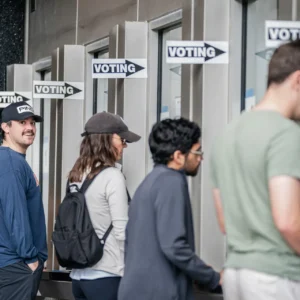Introduction: In the United States, the electoral system serves as the cornerstone of democracy, ensuring that citizens have a voice in their governance through free and fair elections. However, in recent years, concerns have been raised about the efficacy and fairness of the electoral process. Electoral reform has emerged as a critical issue, sparking debates, generating proposals, and raising profound questions about the future of American democracy.

The Need for Electoral Reform: The call for electoral reform stems from various challenges and shortcomings within the current system. One of the primary concerns is the role of money in politics, with critics arguing that the influence of wealthy donors and special interest groups undermines the principle of equal representation. Additionally, issues such as gerrymandering, voter suppression, and the Electoral College have raised doubts about the integrity and legitimacy of elections.
Debates Surrounding Electoral Reform: Debates over electoral reform encompass a wide range of topics, with differing perspectives and proposed solutions. One contentious issue is campaign finance reform, with advocates calling for stricter regulations on political contributions and greater transparency in campaign spending. Others advocate for ending gerrymandering, which involves manipulating district boundaries to favor one political party, by implementing independent redistricting commissions.
The role of the Electoral College has also come under scrutiny, particularly in light of recent presidential elections where the winner of the popular vote did not secure the presidency. Some argue for abolishing the Electoral College in favor of a direct popular vote system, while others propose alternative reforms such as the National Popular Vote Interstate Compact, which would ensure that the candidate who wins the popular vote becomes president.
Proposals for Electoral Reform: Numerous proposals have been put forth to address the shortcomings of the electoral system and strengthen American democracy. One proposal is the adoption of ranked-choice voting, which allows voters to rank candidates in order of preference. This system ensures that the winner has broad support among voters and reduces the likelihood of “spoiler” candidates splitting the vote.
Another proposal is to expand access to voting through measures such as automatic voter registration, early voting, and mail-in balloting. These reforms aim to make it easier for eligible citizens to participate in elections and reduce barriers to voter turnout, particularly among marginalized communities.
Additionally, calls for reforming the Electoral College have led to discussions about alternative methods of electing the president, such as proportional allocation of electoral votes based on the popular vote in each state. Proponents argue that this approach would more accurately reflect the will of the people while preserving the federalist principles of the Electoral College.
Implications for American Democracy: The outcome of debates over electoral reform will have far-reaching implications for the future of American democracy. By addressing issues such as campaign finance, gerrymandering, and the Electoral College, reforms have the potential to enhance the integrity and legitimacy of elections, strengthen democratic institutions, and increase public trust in the political process.
Also Read
Moreover, electoral reform has the power to promote greater inclusivity and representation in the political system, ensuring that all voices are heard and all votes are counted. By reducing barriers to participation and leveling the playing field for candidates, reforms can help create a more equitable and responsive democracy that reflects the diverse perspectives and interests of the American people.

Electoral reform stands at the forefront of efforts to strengthen American democracy and ensure that the electoral system remains fair, transparent, and inclusive. By addressing longstanding challenges and embracing innovative solutions, reformers have the opportunity to revitalize the democratic process and reaffirm the principles of equality, representation, and accountability upon which our nation was founded. As debates continue and proposals are considered, it is imperative that we remain committed to advancing reforms that uphold the integrity of our elections and safeguard the rights and freedoms of all citizens.





